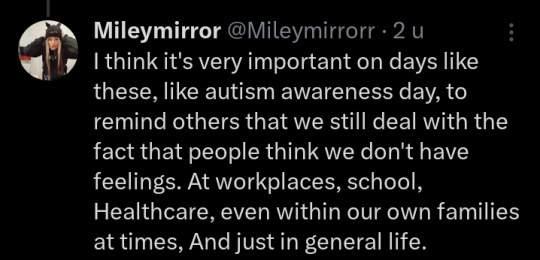Text
Horses: Since There Seems To Be A Knowledge Gap
I'm going to go ahead and preface this with: I comment pretty regularly on clips and photos featuring horses and horseback riding, often answering questions or providing explanations for how or why certain things are done. I was a stable hand and barrel racer growing up, and during my 11 year tenure on tumblr, Professional Horse Commentary is a very niche, yet very necessary, subject that needs filling. Here are some of the literary and creative gaps I've noticed in well meaning (and very good!) creators trying to portray horses and riding realistically that... well, most of you don't seem to even be aware of, because you wouldn't know unless you worked with horses directly!
Some Of The Most Common Horse + Riding Mistakes I See:
-Anybody can ride any horse if you hold on tight enough/have ridden once before.
Nope. No, no, no, no, aaaaaaaand, no. Horseback riding has, historically, been treated as a life skill taught from surprisingly young ages. It wasn't unusual in the pre-vehicular eras to start teaching children as young as 4 to begin to ride, because horses don't come with airbags, and every horse is different. For most adults, it can take months or years of regular lessons to learn to ride well in the saddle, and that's just riding; not working or practicing a sport.
Furthermore, horses often reject riders they don't know. Unless a horse has been trained like a teaching horse, which is taught to tolerate riders of all skill and experience levels, it will take extreme issue with having some random person try to climb on their back. Royalty, nobility, and the knighted classes are commonly associated with the "having a favorite special horse" trope, because it's true! Just like you can have a particularly special bond with a pet or service animal that verges on parental, the same can apply with horses. Happy horses love their owners/riders, and will straight-up do their best to murder anyone that tries to ride them without permission.
-Horses are stupid/have no personality.
There isn't a more dangerous assumption to make than assuming a horse is stupid. Every horse has a unique personality, with traits that can be consistent between breeds (again, like cat and dog breeds often have distinct behavior traits associated with them), but those traits manifest differently from animal to animal.
My mother had an Arabian horse, Zipper, that hated being kicked as a signal to gallop. One day, her mom and stepdad had a particularly unpleasant visitor; an older gentleman that insisted on riding Zipper, but refused to listen to my mother's warnings never to kick him. "Kicking" constitutes hitting the horse's side(s) with your heels, whether you have spurs on or not. Most horses only need a gentle squeeze to know what you want them to do.
Anyway, Zipper made eye-contact with my mom, asking for permission. He understood what she meant when she nodded at him. He proceeded to give this asshole of a rider road rash on the side of the paddock fence and sent him to the emergency room. He wouldn't have done it if he didn't have the permission from the rider he respected, and was intelligent enough to ask, "mind if I teach this guy a lesson?" with his eyes, and understand, "Go for it, buddy," from my mom in return.
-Riding bareback is possible to do if you hold onto the horse's mane really tight.
Riding a horse bareback (with no saddle, stirrups, or traditional harness around the horse's head) is unbelievably difficult to learn, particularly have testicles and value keeping them. Even professional riders and equestrians find ourselves relying on tack (the stuff you put on a horse to ride it) to stay stable on our horses, even if we've been riding that particular horse for years and have a very positive, trusting relationship.
Horses sweat like people do. The more they run, the more their hair saturates with sweat and makes staying seated on them slippery. Hell, an overworked horse can sweat so heavily that the saddle slips off its back. It's also essential to brush and bathe a horse before it's ridden in order to keep it healthier, so their hair is often quite slick from either being very clean or very damp. In order to ride like that, you have to develop the ability to synchronize your entire body's rhythm's with the rhythm of the horse's body beneath you, and quite literally move as one. Without stirrups, most people can't do it, and some people can never master bareback riding no matter how many years they spend trying to learn.
-You can be distracted and make casual conversation while a horse is standing untethered in the middle of a barn or field.
At every barn I've ever worked at, it's been standard practice with every single horse, regardless of age or temperament, to secure their heads while they're being tacked up or tacked down. The secures for doing this are simple ropes with clips that are designed to attach to the horse's halter (the headwear for a horse that isn't being ridden; they have no bit that goes in the horse's mouth, and no reins for a rider to hold) on metal O rings on either side of the horse's head. This is not distressing to the horse, because we give them plenty of slack to turn their heads and look around comfortably.
The problem with trying to tack up an unrestrained horse while chatting with fellow stable hands or riders is that horses know when you're distracted! And they often try to get away with stuff when they know you're not looking! In a barn, a horse often knows where the food is stored, and will often try to tiptoe off to sneak into the feed room.
Horses that get into the feed room are often at a high risk of dying. While extremely intelligent, they don't have the ability to throw up, and they don't have the ability to tell that their stomach is full and should stop eating. Allowing a horse into a feed/grain room WILL allow it to eat itself to death.
Other common woes stable hands and riders deal with when trying to handle a horse with an unrestrained head is getting bitten! Horses express affection between members of their own herd, and those they consider friends and family, through nibbling and surprisingly rough biting. It's not called "horseplay" for nothing, because during my years working with horses out in the pasture, it wasn't uncommon at all for me to find individuals with bloody bite marks on their withers (that high part on the middle of the back of their shoulders most people instinctively reach for when they try to get up), and on their backsides. I've been love-bitten by horses before, and while flattering, they hurt like hell on fleshy human skin.
So, for the safety of the horse, and everybody else, always make a show of somehow controlling the animal's head when hands-on and on the ground with them.
-Big Horse = War Horse
Startlingly, the opposite is usually the case! Draft and carriage horses, like Percherons and Friesians, were never meant to be used in warfare. Draft horses are usually bred to be extremely even-tempered, hard to spook, and trustworthy around small children and animals. Historically, they're the tractors of the farm if you could afford to upgrade from oxen, and were never built to be fast or agile in a battlefield situation.
More importantly, just because a horse is imposing and huge doesn't make it a good candidate for carrying heavy weights. A real thing that I had to be part of enforcing when I worked at a teaching ranch was a weight limit. Yeah, it felt shitty to tell people they couldn't ride because we didn't have any horses strong enough to carry them due to their weight, but it's a matter of the animal's safety. A big/tall/chonky horse is more likely to be built to pull heavy loads, but not carry them flat on their spines. Horses' muscular power is predominantly in their ability to run and pull things, and too heavy a rider can literally break a horse's spine and force us to euthanize it.
Some of the best war horses out there are from the "hot blood" family. Hot blooded horses are often from dry, hot, arid climates, are very small and slight (such as Arabian horses), and are notoriously fickle and flighty. They're also a lot more likely to paw/bite/kick when spooked, and have even sometimes been historically trained to fight alongside their rider if their rider is dismounted in combat; kicking and rearing to keep other soldiers at a distance.
-Any horse can be ridden if it likes you enough.
Just like it can take a lifetime to learn to ride easily, it can take a lifetime of training for a horse to comfortably take to being ridden or taking part in a job, like pulling a carriage. Much like service animals, horses are typically trained from extremely young ages to be reared into the job that's given to them, and an adult horse with no experience carrying a rider is going to be just as scared as a rider who's never actually ridden a horse.
Just as well, the process of tacking up a horse isn't always the most comfortable experience for the horse. To keep the saddle centered on the horse's back when moving at rough or fast paces, it's essential to tighten the belly strap (cinch) of the saddle as tightly as possible around the horse's belly. For the horse, it's like wearing a tight corset, chafes, and even leaves indents in their skin afterward that they love having rinsed with water and scratched. Some horses will learn to inflate their bellies while you're tightening the cinch so you can't get it as tight as it needs to be, and then exhale when they think you're done tightening it.
When you're working with a horse wearing a bridle, especially one with a bit, it can be a shocking sensory experience to a horse that's never used a bit before. While they lack a set of teeth naturally, so the bit doesn't actually hurt them, imagine having a metal rod shoved in your mouth horizontally! Unless you understand why it's important for the person you care about not dying, you'd be pretty pissed about having to keep it in there!
-Horseback riding isn't exercise.
If you're not using every muscle in your body to ride with, you're not doing it right.
Riding requires every ounce of muscle control you have in your entire body - although this doesn't mean it wasn't realistic for people with fat bodies to stay their weight while also being avid riders; it doesn't mean the muscles aren't there. To stay on the horse, you need to learn how it feels when it moves at different gaits (walk, trot, canter, gallop), how to instruct it to switch leads (dominant legs; essential for precise turning and ease of communication between you and the horse), and not falling off. While good riders look like they're barely moving at all, that's only because they're good riders. They know how to move so seamlessly with the horse, feeling their movements like their own, that they can compensate with their legs and waists to not bounce out of the saddle altogether or slide off to one side. I guarantee if you ride a horse longer than 30 minutes for the first time, your legs alone will barely work and feel like rubber.
-Horses aren't affectionate.
Horses are extraordinarily affectionate toward the right people. As prey animals, they're usually wary of people they don't know, or have only recently met. They also - again, like service animals - have a "work mode" and a "casual mode" depending upon what they're doing at the time. Horses will give kisses like puppies, wiggle their upper lips on your hair/arms to groom you, lean into neck-hugs, and even cuddle in their pasture or stall if it's time to nap and you join them by leaning against their sides. If they see you coming up from afar and are excited to see you, they'll whinny and squeal while galloping to meet you at the gate. They'll deliberately swat you with their tails to tease you, and will often follow you around the pasture if they're allowed to regardless of what you're up to.
-Riding crops are cruel.
Only cruel people use riding crops to hurt their horses. Spurs? I personally object to, because any horse that knows you well doesn't need something sharp jabbing them in the side for emphasis when you're trying to tell them where you want them to go. Crops? Are genuinely harmless tools used for signalling a horse.
I mean, think about it. Why would crops be inherently cruel instruments if you need to trust a horse not to be afraid of you and throw you off when you're riding it?
Crops are best used just to lightly tap on the left or right flank of the horse, and aren't universally used with all forms of riding. You'll mainly see crops used with English riding, and they're just tools for communicating with the horse without needing to speak.
-There's only one way to ride a horse.
Not. At. All. At most teaching ranches, you'll get two options: Western, or English, because they tend to be the most popular for shows and also the most common to find equipment for. English riding uses a thinner, smaller saddle, narrower stirrups, and much thinner bridles. I, personally, didn't like English style riding because I never felt very stable in such a thin saddle with such small stirrups, and didn't start learning until my mid teens. English style riding tends to focus more on your posture and deportment in the saddle, and your ability to show off your stability and apparent immovability on the horse. It was generally just a bit too stiff and formal for me.
Western style riding utilizes heavier bridles, bigger saddles (with the iconic horn on the front), and broader stirrups. Like its name may suggest, Western riding is more about figuring out how to be steady in the saddle while going fast and being mobile with your upper body. Western style riding is generally the style preferred for working-type shows, such as horseback archery, gunning, barrel racing, and even rodeo riding.
-Wealthy horse owners have no relationship with their horses.
This is loosely untrue, but I've seen cases where it is. Basically, horses need to feel like they're working for someone that matters to them in order to behave well with a rider and not get impatient or bored. While it's common for people to board horses at off-property ranches (boarding ranches) for cost and space purposes, it's been historically the truth that having help is usually necessary with horses at some point. What matters is who spends the most time with the animal treating it like a living being, rather than a mode of transport or a tool. There's no harm in stable hands handling the daily upkeep; hay bales and water buckets are heavy, and we're there to profit off the labor you don't want or have the time to do. You get up early to go to work; we get up early to look after your horses. Good owners/boarders visit often and spend as much of their spare time as they can with spending quality work and playtime with their horses. Otherwise, the horses look to the stable hands for emotional support and care.
So, maybe you're writing a knight that doesn't really care much for looking after his horse, but his squire is really dedicated to keeping up with it? There's a better chance of the horse having a more affectionate relationship with the squire thanks to the time the squire spends on looking after it, while the horse is more likely to tolerate the knight that owns it as being a source of discipline if it misbehaves. That doesn't mean the knight is its favorite person. When it comes to horses, their love must be earned, and you can only earn it by spending time with them hands-on.
-Horses can graze anywhere without concern.
This is a mistake that results in a lot of premature deaths! A big part of the cost of owning a horse - even before you buy one - is having the property that will be its pasture assessed for poisonous plants, and having those plants removed from being within the animal's reach. This is an essential part of farm upkeep every year, because horses really can't tell what's toxic and what isn't. One of the reasons it's essential to secure a horse when you aren't riding it is to ensure it only has a very limited range to graze on, and it's your responsibility as the owner/rider to know how to identify dangerous plants and keep your horses away from them.
There's probably more. AMA in my askbox if you have any questions, but that's all for now. Happy writing.
1K notes
·
View notes
Text

Let's go!!
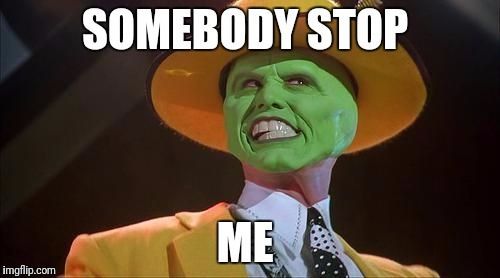
3 free days ahead.
Next week is a short week.
I only need tomorrow to clean up my balcony and tend to my plans for summer.
That means:
I HAVE A LOT OF TIME TO WRITE! PREPARE FOR SHENANIGANS!
May is going to be my month. I feel it.
Maybe the old proverb is true. May is making everything new.
6 notes
·
View notes
Text
Hey you! Yes you!
Have you tortured a blorbo today?
#The blorbos are torturing me today#I'm actually being nice to them right now#Don't ask what happened to Adelheit's family#Shhh
133 notes
·
View notes
Text

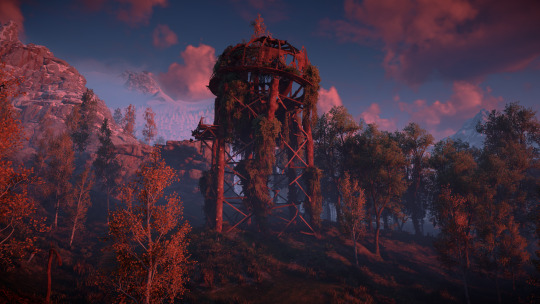
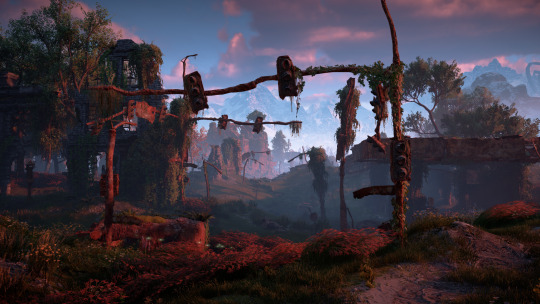
HORIZON ZERO DAWN ー scenery (22 / ∞)
8 notes
·
View notes
Text
Es hat übrigens nur Vorteile, einen alterstechnisch sehr weit gestreuten Freundeskreis zu haben.
alle deine Freunde sind in unterschiedlichen Lebensphasen, du vergleichst dich also seltener mit irgendjemandem und denkst dir "aw man, warum habe ich das im Leben noch nicht erreicht?". Gerade wenn man dadurch auch mit unterschiedlichen Lebensentwürfen in Kontakt kommt
older people are like. really compelled to give you a bunch of clothes. Es ist der "Klamotten vom großen Bruder"-Instinkt.
62 notes
·
View notes
Text
OUT OF CONTEXT LINE TAG
I was tagged by @autumnalwalker
This line is from the upcoming @nightmare-magic
Nothing we can do through our magic is working. The goddess is not helping and even Sylvan seems unable to vanquish whatever is coming to torture her dreams. The ancestors don’t seem to be able or willing to help, they are not communicating which. I’ve never run into anything like this
Soft tagging - @blind-the-winds @pheita @dreaminggoblin @writingmaidenwarrior @saltysupercomputer @thebejeweledwatercat @toribookworm22 @mjjune @frostedlemonwriter @cillmequick @runnning-outof-time @zablife @moral-terpitude @garrison-girl-08 @steh-lar-uh-nuhs @look-at-the-soul
14 notes
·
View notes
Text
Hang in there!
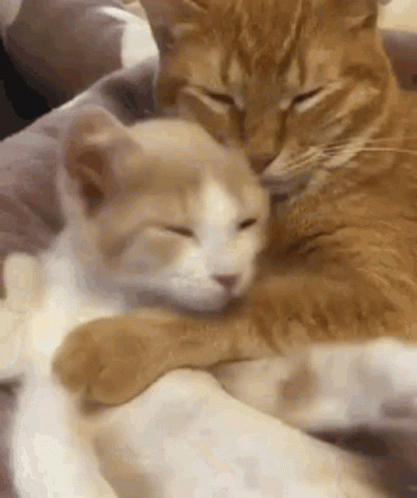

@saltysupercomputer @pheita @dreaminggoblin @thebejeweledwatercat @writingmaidenwarrior
It is the day before the end of the month at work....SAAAAAVE ME....
I'll be on and off today...so shenanigans will continue slowly...
*sends each of you a pixie*
16 notes
·
View notes
Text
Even if I didn’t have a solid plan, in the back of my head, I always assumed I’d kill myself.
Now I’m an adult and people my age have their lives in order and I’m stuck here, confused, because I never planned to be alive and I’m so far behind.
I feel like I’ll never catch up.
42K notes
·
View notes
Text
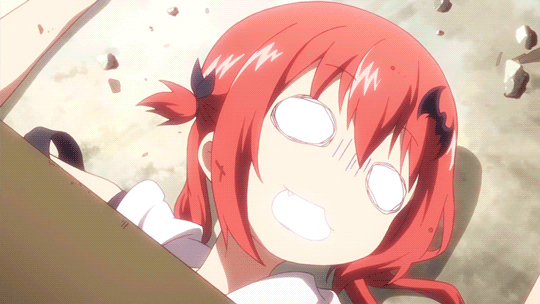
I'm still sick and not having fun. Managed to do one of my weekly chores yesterday. Now I'm stuck in bed resting, but at least I'm getting a lot of reading done.
#yelling at clouds#i hate being sick i hate my infant level immune system#also hate having to drive to a doctor otherwise I'd be making more appointments
1 note
·
View note
Text
This isn't aimed at any one person, more of a general observation from my comments/inbox over the last few years, but the number of people who say things like "but that's normal" when I describe hypermobility compared to the number of times healthcare providers look at me like I'm a glitch in the matrix is a Ven diagram made up of a single circle at this point.
Like I feel like some people just aren't envisioning the things I'm describing properly and are imagining a normal range of motion, but I also think some of you might want to consider getting evaulated.
Especially when you send me messages like, "There's nothing wrong with me except for my debilitating joint pain, crippling exhaustion, and the fact that blood shoots out of my eyes once a month, but isn't it normal to be able to do X?"
2K notes
·
View notes
Text
My face is having uncontrollable spasms. Great. It hurts really, really, really bad.
I think part of why I have trouble explaining pain to the doctor is when they ask about the pain scale I always think “Well, if someone threw me down a flight of stairs right now or punched me a few times, it would definitely hurt a lot more” so I end up saying a low number. I was reading an article that said that “10” is the most commonly reported number and that is baffling to me. When I woke up from surgery with an 8" incision in my body and I could hardly even speak, I was in the most horrific pain of my life but I said “6” because I thought “Well, if you hit me in the stomach, it would be worse.”
338K notes
·
View notes
Text
Right? The people doing the stands in my area were already quite old, and they didn't have anyone to take over for them. It's so sad, I got a good collection out of them and loved just looking too.
Ahhhhhh, my boss just reminded me I got my days off on Thursday and Friday and with Wednesday being a holiday.....
HALF A WEEK FREE ! I FINALLY HAVE TIME TO WRITE AGAIN!
@cljordan-imperium you might get some new stuff on our idiot babies by next Monday if the stars align well.

27 notes
·
View notes
Text
Honestly it's sad to see. I loved flea markets as a kid, especially the stands with the stones. My grandpa knew one of the guys running the stand, so we always exchanged greetings even if I didn't buy any fossil or gem or whatever else they had out.
Ahhhhhh, my boss just reminded me I got my days off on Thursday and Friday and with Wednesday being a holiday.....
HALF A WEEK FREE ! I FINALLY HAVE TIME TO WRITE AGAIN!
@cljordan-imperium you might get some new stuff on our idiot babies by next Monday if the stars align well.

27 notes
·
View notes
Text
I think some people forget that some literature and some media is meant to be deeply uncomfortable and unsettling. It's meant to make you have a very visceral reaction to it. If you genuinely can't handle these stories then you are under no obligation to consume them but acting as if they have no purpose or as if people don't have a right to tell these stories, stories that often relate to the darkest or most disturbing parts of life, then you should do some introspection.
3K notes
·
View notes

